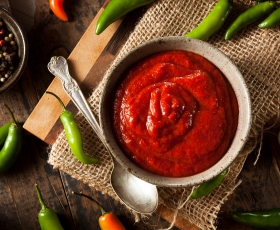Introduction
In today's busy and also ever-changing world, the food industry is constantly developing to fulfill the demands of customers. One location that has seen considerable development as well as development is contract food manufacturing. This process involves partnering with a specialized company to produce and package food products in support of an additional brand. In Australia, contract food manufacturing has come to be progressively preferred due to its various benefits and also advantages. In this write-up, we will certainly explore the many benefits of contract food manufacturing in Australia and also exactly how it can assist companies grow in the affordable food industry.
Contract Food Manufacturing: What Is It?
Before diving right into the advantages, allow's very first define what contract food manufacturing requires. Contract food manufacturing, also referred to as co-packing or toll production, is a strategic collaboration between a brand or firm and also a specialized agreement supplier. The agreement maker is in charge of creating, packaging, as well as sometimes even dispersing the food on behalf of the brand. This setup permits brands to focus on their core expertises such as marketing, sales, and product advancement while leaving the production procedure to experts.

The Benefits of Contract Food Manufacturing
1. Cost-Effectiveness
Contract food production offers substantial cost financial savings for brands contrasted to building their very own production facilities. Building a food manufacturing plant calls for considerable financial investments in infrastructure, equipment, upkeep, as well as experienced labor. By partnering with a contract producer, brands can prevent these in advance costs as well as rather pay for production services on an as-needed basis.
2. Scalability
One of the crucial advantages of contract food manufacturing is its scalability. As a brand name expands or experiences variations sought after, it can quickly change production quantities without having to buy additional resources or equipment. This versatility enables brands to respond rapidly to market modifications and also consumer demands.
3. Knowledge and Innovation
Contract producers concentrate on food production as well as have considerable knowledge and know-how in their field. They keep up with the most recent industry trends, innovations, as well as regulations, guaranteeing that the products they manufacture are of the finest and fulfill all required criteria. Additionally, contract manufacturers frequently have dedicated research and development teams that can assist brands introduce as well as establish new food products.
4. Quality Control
Maintaining consistent product quality is critical in the food sector. Contract food suppliers have durable quality assurance procedures in place to guarantee that every batch of items meets stringent requirements and specs. They follow Great Manufacturing Practices (GMP) and comply with food safety regulations, providing brand names with assurance knowing that their items are risk-free for consumption.
5. Rate to Market
Launching a new food product can be a lengthy procedure, specifically if a brand has to construct its very own production center from the ground up. Contract food manufacturing permits brands to increase their time to market dramatically. By leveraging the existing framework and also know-how of an agreement maker, brand names can bring their items to market much faster, gaining a competitive advantage in the industry.


6. Personalization and also Flexibility
Contract food manufacturers supply a wide range of personalization options for brand names. Whether it's changing ingredient formulations, packaging layouts, or section sizes, agreement makers can tailor their services to satisfy details brand requirements. This degree of modification allows brands to develop special products that resonate with their target audience.
7. Lowered Risk
Entering the food industry can be high-risk, particularly for start-ups or small businesses with minimal sources. Contract food manufacturing assists minimize this threat by offering access to well-known production facilities and also supply chains. Brands can take advantage of the knowledge and also experience of agreement manufacturers while lessening monetary risks related to building their very own manufacturing capabilities.
FAQs about Contract Food Manufacturing in Australia
What types of food can be manufactured through contract food manufacturing in Australia? Contract food manufacturing in Australia covers a vast array of items including drinks, treats, frozen foods, sauces, spices, dairy items, and much more. The convenience of contract food manufacturing allows brand names to generate numerous food things customized to their specific needs.
How can contract food manufacturing in Australia assist local business or startups? Contract food manufacturing supplies local business as well as startups with an economical means to enter the food sector without the need for substantial investments in framework and also tools. It permits them to focus on building their brand name while leaving the manufacturing procedure to experts.
Is contract food manufacturing just appropriate for massive production? No, contract food manufacturing appropriates for both large and small-scale production. Contract makers have the flexibility to fit various manufacturing volumes based upon brand name requirements.
Can agreement food suppliers aid with packaging style and labeling requirements? Yes, agreement food producers commonly supply services related to product packaging design and labeling. They can give support on regulatory needs and help brands develop attractive as well as compliant packaging for their products.
Are agreement food producers in charge of item circulation as well? While some contract manufacturers offer circulation solutions, it is not always included in the partnership agreement. Brands can select to take care of circulation themselves or work with third-party logistics service providers to ensure their items get to the marketplace efficiently.
What are the key factors to take into consideration when choosing a contract food maker in Australia? When choosing an agreement food maker in Australia, brand names need to consider aspects such as experience, knowledge, accreditations (such as HACCP or GMP), manufacturing capabilities, performance history, and also credibility in the sector. It is additionally vital to assess the producer's capacity to meet details item demands and also timelines.
Conclusion
Contract food production provides many advantages for brand names in Australia looking to go into or expand their visibility in the affordable food sector. From expense financial savings and also scalability to experience and also advancement, partnering with a contract manufacturer can assist brand names improve their operations, preserve high product high quality, and increase their time to market. By leveraging the capabilities of agreement food manufacturers, brands can concentrate on what they do best-- developing as well as marketing phenomenal food that satisfy consumer needs. So, if you're thinking about getting in the food market or seeking to boost your existing procedures, contract food manufacturing in Food supply chain challenges Australia may be the calculated option you've been looking for.